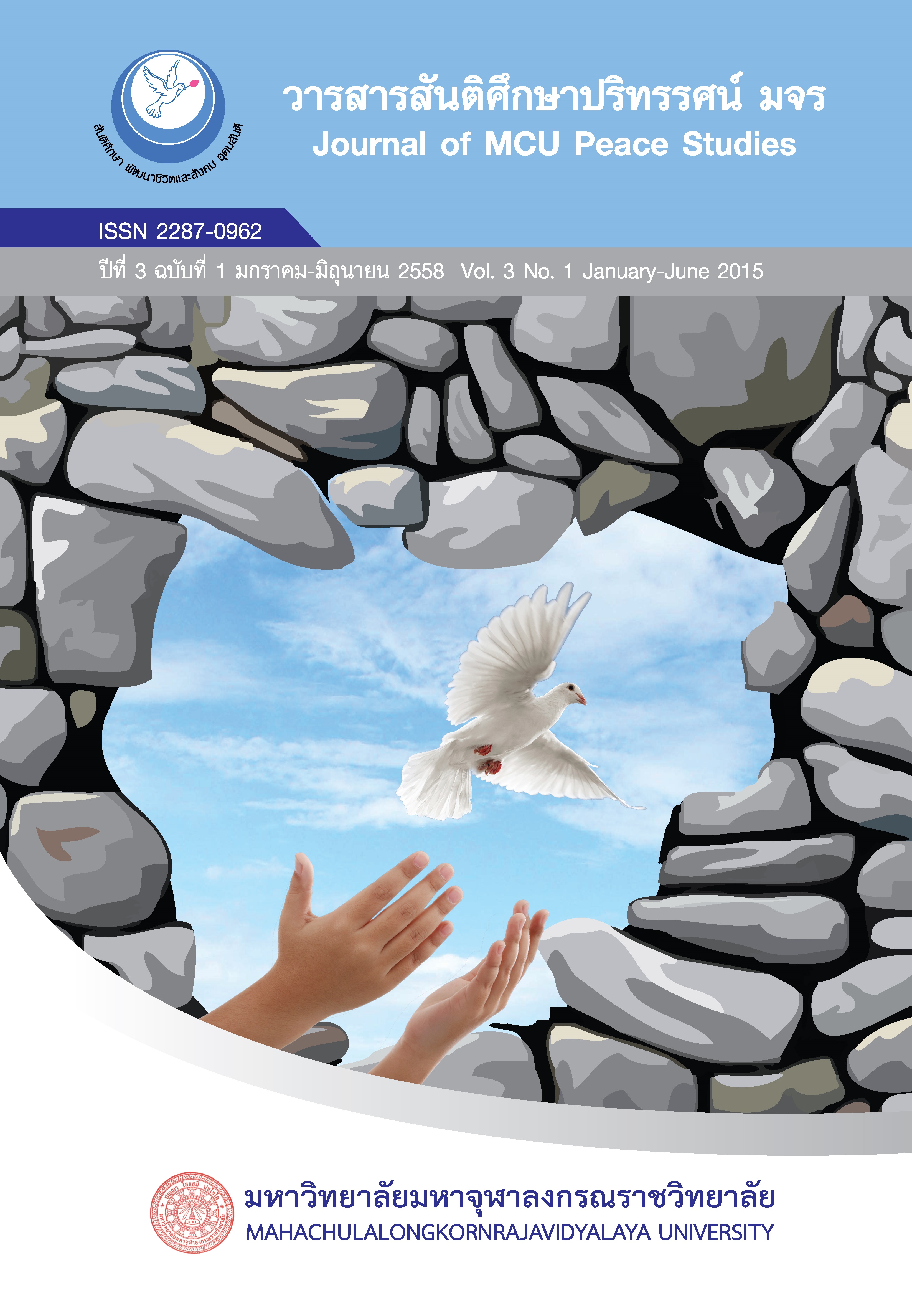THE QUALIFICATIONS OF THE MEDIATOR IN THE INTEGRATED BUDDHIST PERSPECTIVE
Main Article Content
บทคัดย่อ
This research consists of 3 objectives, i.e., (1) to study the conceptual idea of the qualifications of mediators in accordance with the principles of Thai Law and peace makers; (2) to study the conceptual idea of mediators in Buddhism; and (3) to integrate the conceptual idea of mediators in Buddhist Perspective.
The research findings are as follow :- the conceptual idea of the qualifications of mediators in accordance with the principles of Thai Law and peace makers consists of 1) being an ideal person who is able to help, support and yield litigants the conveniences in attaining mutual agreement; 2) being a deep listener, not taking sides nor having bias; and 3) being psychological and intelligent person who has techniques and strategies in managing and handling litigants along with the contexts of environments; and 4) having Emotional Quotient (E.Q.) in the aspects of self and social awareness. These qualifications are conformed to the principles of law and the principle idea of peace makers.
The conceptual idea of qualifications of mediators in Buddhism consists of 1) being good listener; 2) having arts in making speeches; 3) having eagerness in self-development; 4) memorizing precisely well; 5) ability to make the right thought or opinion; 6) explaining clearly; 7) being wise in situations; and 8) harmonizing for unity. These distinguished qualifications compose of supportive Dhamma principles that cover the idea of qualifications of various peace makers including the aspect of law, too.
The qualifications of mediators in the Integrated Buddhist Perspective consist of 4 indicators; i.e. 1) having mindfulness for self-control and being qualified by the designated law; 2) living in good morality in the view of good behaviors; 3) having compassion and loving kindness without any bias, having mindful happiness in the view of mentality; and
4) being able to judge what is right or wrong in the view of wisdom.
Article Details
ทัศนะและความคิดเห็นที่ปรากฏในบทความในวารสาร ถือเป็นความรับผิดชอบของผู้เขียนบทความนั้น และไม่ถือเป็นทัศนะและความรับผิดชอบของกองบรรณาธิการ ยินยอมว่าบทความเป็นลิขสิทธิ์ของวารสาร


